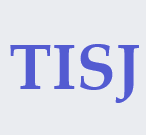Data and Reproducibility Policy
Introduction
At TISJ, we are dedicated to promoting scientific rigor, transparency, and integrity in all published research. This includes adhering to the principles set forth by the Committee on Publication Ethics (COPE), which emphasize the importance of data availability and reproducibility in scientific research. To support this, we have implemented the following Data and Reproducibility Policy that ensures the quality, reliability, and transparency of the research we publish.
The objective of this policy is to provide clear guidelines on the expectations for data sharing, data management, and the reproducibility of research findings. These principles align with the broader commitment to uphold the ethical standards of scientific publishing as outlined by COPE.
Data Transparency and Reporting
Data Accessibility
Authors are expected to provide transparent reporting of all data supporting the conclusions of their study. This includes primary data, processed data, and any supplementary data that are critical to understanding and validating the research findings.
Comprehensive Reporting
Authors must ensure that the data provided is comprehensive and fully described, including the methodology used to collect and analyze it. For quantitative studies, authors should include necessary information on experimental designs, statistical methods, and any data transformations.
Data Sharing
In accordance with COPE guidelines, TISJ encourages authors to share their data openly. Authors should deposit their data in publicly accessible and trustworthy repositories. If data cannot be deposited in a public repository, authors must explain the reasons why and ensure that the data can be made available upon reasonable request.
Ethical and Legal Considerations
When sharing data, authors must ensure that they comply with ethical guidelines, including participant consent for data sharing (especially in studies involving human subjects), confidentiality agreements, and any applicable legal restrictions. Sensitive data must be anonymized or de-identified to protect privacy and confidentiality.
Data Citation
Authors should properly cite any datasets used or generated as part of their research, following the data repository's citation guidelines. This ensures that data sources are properly attributed and accessible to other researchers.
Reproducibility of Research
Methodological Transparency
To ensure the reproducibility of research, authors are required to provide sufficient detail on the methods and procedures used in their studies. This includes clear descriptions of experimental protocols, materials, data collection processes, and statistical analyses.
Code and Software Sharing
For computational studies, authors are encouraged to provide access to the code and software used to analyze the data or generate the results. This includes any scripts, algorithms, or models developed as part of the research. The code should be deposited in publicly accessible repositories such as GitHub or similar platforms, where applicable.
Reproducibility Checks
Authors must ensure that their methods and results are reproducible by independent researchers. This may involve providing the necessary materials, datasets, and code to allow others to verify the findings. Where possible, authors should make their datasets available to facilitate independent replication studies.
Validation of Results
Authors should aim to validate their findings by conducting additional analyses, using different methods, or applying the research to other datasets where appropriate. This is particularly important for complex or high-impact studies that could influence future research directions.
Peer Review and Reproducibility
Peer Review Criteria
Reviewers are expected to assess the reproducibility of the research during the peer review process. This includes evaluating whether the data and methods are sufficiently detailed to allow for independent replication and whether the conclusions are adequately supported by the data.
Open Peer Review
TISJ encourages an open peer review process, where the reviewers' comments, as well as the authors' responses, may be made available to the public. This allows for transparency in the evaluation process and helps ensure that the research is reproducible and based on sound scientific principles.
Data Management Plans (DMPs)
Data Management Plans
Authors are encouraged to submit a Data Management Plan (DMP) when submitting certain types of research, particularly large-scale or collaborative studies. The DMP should outline how data will be handled throughout the research process, including collection, storage, sharing, and long-term preservation.
Justification for Non-Disclosure
In cases where data cannot be made available, authors must provide a clear justification for this decision. Legitimate reasons may include ethical concerns, legal restrictions, or data privacy issues. Authors must clearly state these limitations in their manuscript, and wherever possible, make alternative arrangements for sharing key components of the data.
Exceptions to Data Sharing
Legitimate Exceptions
While TISJ promotes open data sharing, we recognize that there are valid exceptions. These include:
- Ethical constraints such as the need to protect participants' privacy in clinical studies.
- Legal restrictions or commercial interests that prevent the open release of data.
- Technical limitations related to the data format or size.
Non-Disclosure
In such cases, authors must provide a valid explanation for not sharing the data publicly. The justification should be made clear in the manuscript and addressed by the editor during the publication process.
Enforcement and Compliance
Compliance with Policy
Authors, reviewers, and editors are required to comply with the Data and Reproducibility Policy. Failure to adhere to these guidelines may result in the rejection of the manuscript or, if already published, retraction or amendment of the article.
Monitoring and Audits
The journal reserves the right to conduct random audits or checks to verify data availability and reproducibility for articles already published. Authors may be asked to provide additional data or materials to confirm the reproducibility of their findings.
Post-Publication
If issues arise post-publication concerning data integrity, reproducibility, or transparency, TISJ will follow COPE guidelines for handling such concerns. This may involve issuing corrections, expressions of concern, or, in severe cases, retracting the article.
Conclusion
TISJ is committed to ensuring the integrity and reproducibility of the research we publish. By adhering to this Data and Reproducibility Policy, we aim to foster a transparent and ethical scientific publishing process that enhances the credibility and value of published research.
For any questions or concerns regarding this policy, please contact the editorial office at journal@topitalianscientists.org.
